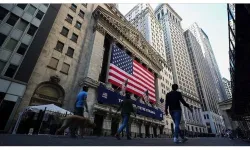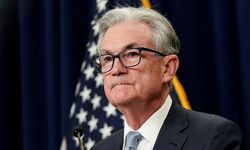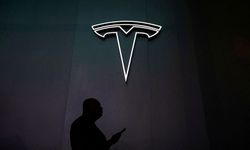Investors in the US have done well so far, thanks to the stock market rally of 2023 and the resilient nature of the US economy. The fact that the expected recession has not come since last year has also had a great impact on this.
The possibility that Goldilocks, the dream scenario of investors who have been moving forward with assumptions such as recession, soft landing and hard landing throughout this whole process, is increasing.
Goldilocks scenario wounded
As Markets Insider's Matthew Fox reports, Wall Street's Goldilocks dream scenario for the US stock market and economy, while not over, appears to be severely damaged at best. And all because of a single press conference by Fed Chairman Jerome Powell in September that seemed to shatter the hopes that had been building on Wall Street all year.
So what happened? What happened was that interest rates rose. It was already difficult for investors to watch the 10-year US Treasury bond yield rise from 1.1 percent in January 2021 to 4.84 percent today, but the key bond yield has now risen by a full percentage point in the last 10 weeks alone.
Is something deteriorating in the economy?
This is a very big move and the relentless rise in interest rates is also fueled by Powell's insistence that another rate hike is probably necessary to suppress inflation. In a speech in September, Powell signaled that the Fed expects to keep its benchmark interest rate above 5 percent until 2024. This contradicted investors' previous expectations for a rate cut as early as the first quarter of next year.
The reaction in equity and bond markets was swift and violent. The 10-year US Treasury bond yield rose to 4.84 percent, while the S&P 500 Index extended its decline since the end of July to nearly 10 percent. With interest rates exceeding levels not seen since 2007, investors and consumers became more concerned that something was about to go wrong in the economy.
What has changed? Is the bond market breaking?
After ignoring rate hikes and threats of higher rates for most of this year, markets decided that the September policy meeting was the turning point and started to take the Fed at its word: "High rates are here to stay, fasten your seatbelts."
Investors are increasingly worried that the Fed's persistently hawkish monetary policy will disrupt something in the economy, even after inflation fell from its peak of 9 percent in June 2022 to 3 percent in July.
There was already a taste of this when interest rates spiked earlier this year, sparking massive bond losses at regional banks and leading to the collapse of Silicon Valley Bank. At the time, the US 10-year bond yield was below 4 percent. Today it is close to 5 percent.
Now it is time to potentially cut bond portfolios. Investors and banks are facing massive losses on their bond holdings that could rival a major stock market crash, with bonds with maturities of 10 years or more plunging 46 percent, on par with the bursting of the dot-com bubble in 2000.
Consumers are also in trouble
Meanwhile, the consumer is struggling with limits. Total credit card debt in the US has surpassed $1 trillion, default rates for auto loans and credit card loans are rising, student loan payments resumed this month for the first time in three years, and mortgage rates near 8 percent make the prospect of buying a home prohibitively expensive for millennials.
"Consumers are becoming more conservative about their spending as they continue to face headwinds such as high inflation, high interest rates and a slowing labor market and income gains," Greg Daco, chief economist at EY, said in a statement. The October 1 resumption of student loan payments, the near depletion of the savings surplus, and tighter credit conditions will have a further negative impact on consumers' ability to spend into next year."
Is the soft landing scenario completely off the table?
Corporate CEOs, economists and investment strategists have been warning since 2022 about when, not if, a recession will hit the US economy. Consumers continue to surprise everyone. As painful as inflation and high interest rates are, the economy remains resilient as consumers continue to quit their jobs and use their credit cards. The latest jobs report shows that employers added a stunning 336,000 new jobs in September alone.
Wall Street's dream scenario gone wrong?
Wall Street's Goldilocks scenario for the US stock market and economy is probably over.
Editor: Albert Owen
Trending news

Snoop Dogg to carry the Olympic torch

Lily James Expresses Admiration for Hailey Bieber’s Rhode Skincare Line

Taylor Tomlinson Will Explore Her Faith and Sexuality on Tour!

'Alien mummy' in Peru raises eyebrows

Scandal in the heart of Europe: Child abuse in a church!

Kamala Harris’ Running Mate: Here’s Who Could Be Her VP After Biden Drops Out And Endorses Her









